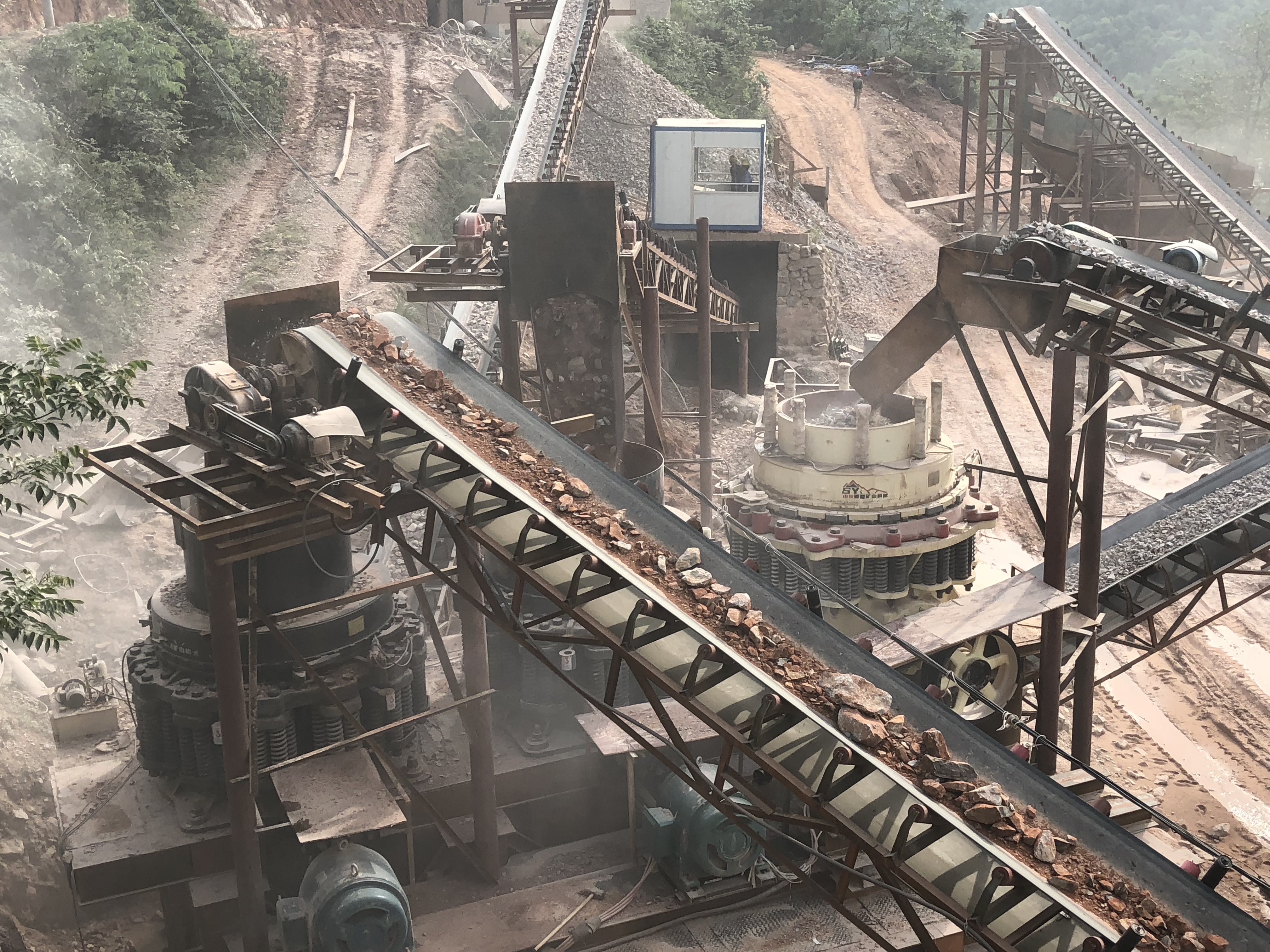Typical failures of hydraulic cone breakers
Hydraulic cone crusher and jaw crusher, impact crusher and other more traditional crusher, compared with
the structure is much more complex, with more sophisticated, the processing requirements are also higher,
at the same time because of its hydraulic system and lubrication system is also very complex. Once a
failure occurs, it needs to be shut down for maintenance and processing, which will have an impact on
production.
The following shares 7 types of typical failures of hydraulic cone breakers, so that when you encounter problems, you can quickly find the cause and solve the problem.
1、Adjustment ring jumping
Adjustment ring jumping refers to the abnormal jumping of the part above the adjustment ring during
the crushing operation of multi-cylinder crusher, and it keeps hitting the frame. There are two main
reasons for this:
① Overload. The powder in the feed material is too much and wet, sticky, blocked in the crushing
chamber can not be discharged properly resulting in overload; the discharge opening is adjusted too
small, not adapted to the current hardness and size of the material, resulting in overload.
② Insufficient pressure of release cylinder. According to Newton's third law, in fact, the pressure of the
release cylinder determines the maximum crushing force of the crusher, when the pressure of the release
cylinder is insufficient, the maximum crushing force is reduced, and the constant occurrence of ring
jumping is in fact the constant occurrence of over-iron or overload protection of non-normal factors.
2、Eccentric sleeve / cone liner erosion
Eccentric sleeve erosion is a common multi-cylinder cone crusher is a more serious failure, eccentric
sleeve is driven by the cone to do the rotary oscillation crushing movement of the direct contact parts,
as long as the crusher in the work, the eccentric sleeve will be friction with the dynamic cone liner high
intensity, so the only guarantee of adequate lubrication in order to avoid their erosion. Therefore, once
this failure occurs, it must be a lubrication problem, which may be lubricant leakage, lubrication pipeline
blockage, and possibly insufficient lubricant pressure.
3、Loose fixed cone
Loose fixed cone will greatly affect the crushing effect, and allow it to develop will greatly damage the
crusher, and may even be directly scrapped, and the causes of loose fixed cone are as follows:
①The threads of the adjusting ring and the fixed cone are worn out, resulting in that they can not be
properly engaged and locked;
② The crusher carries out crushing operation under insufficient pressure of the locking cylinder;
③ The liner of the moving cone or the fixed cone is so thick that the threads between the fixed cone and
the adjusting ring do not engage sufficiently at the same discharge opening.
④ The discharge opening is so large that the thread engagement between the fixed cone and the
adjusting ring is insufficient.
4, drive shaft bushing erosion
Transmission shaft bushing that is the sliding bearings of the drive shaft, bearing the drive shaft about
800RPM high-speed high-intensity rotary friction, lubrication is not in place in the case of a short
period of time to produce a huge buildup of heat, so that the bushing erosion failure. The reason is
basically not enough lubrication, lubricant leakage or drive shaft lubricant road blockage.
5、Material particles pollute the lubrication system
Many parts of the multi-cylinder hydraulic cone crusher that need to be lubricated are made of copper
alloy, which is relatively soft in texture, and at the same time, they are very important, and the cleanliness
of the lubricant needs to be guaranteed. Therefore, the crusher also has high requirements for sealing,
under normal circumstances, the outside world dust will not enter the internal crusher. Possible reasons
are: drive shaft box blower failure, lubrication system ventilator failure, reservoir cover seal broken,
drive shaft or cone seal broken.
6、Lubricating oil leakage
The lubrication system can be regarded as the lifeline to guarantee the long-term stable operation of
multi-cylinder hydraulic cone crusher, once the lubricant is insufficient, it will cause some serious
crusher failures, and the lubricant leakage is a very common failure in the actual operation of the crusher
, which is caused by the following reasons:
① Crusher lubrication pipe is damaged by material scouring due to long-term bending or improper
protection, resulting in lubricant leakage;
② crusher lubrication pipe interface due to collision or vibration loose;
③ Damage to the T-type U-type sealing ring inside the crusher, failure of the sealing O-ring in the
transmission part, or failure of the sealing in the lubrication station.
7、Excessive vibration
Excessive vibration of the crusher will affect the stability and safety of the crushing table, especially the
steel structure of the table, and at the same time, severe vibration will cause many connectors,
transmission parts, joints and pipelines to come loose, thus causing other failures. Causes of excessive
vibration are:
① Counterweight or guard plate wear, rotation imbalance;
② large bevel gear and drive pinion gear tooth root clearance is not correct, resulting in improper gear
mesh;
③ The drive shaft is bent or the speed of the drive shaft is too high;
④ unbalanced crusher foundation, bearing imbalance.
In addition to pay attention to the maintenance of cone breakers in production to reduce the failure rate, we should also pay more attention to the purchase of equipment, and choose manufacturers with guaranteed equipment quality.


